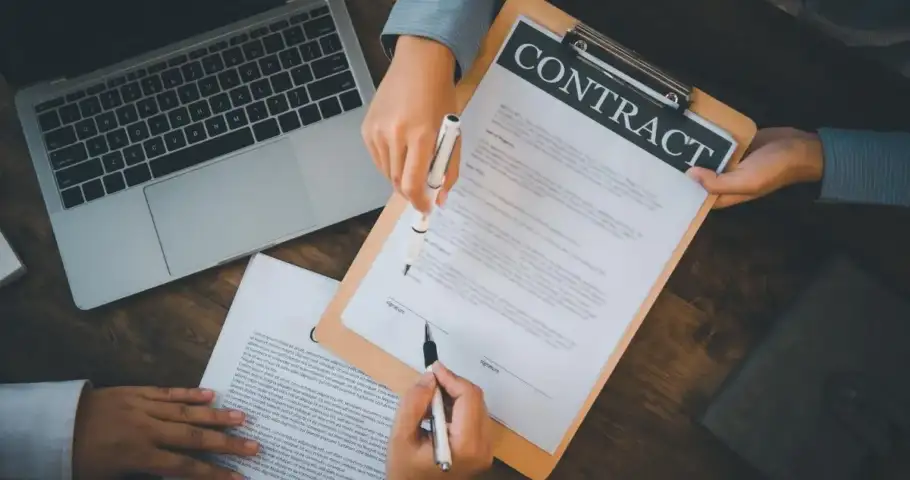The United Arab Emirates is a melting pot of diverse cultures, businesses, and individuals. It is one of the safest countries where life is easy, vibrant, and dynamic. To maintain the safety of the nation and its residents UAE authorities have strict laws that must be taken into consideration. Not knowing the rules and laws of the country could lead to a situation where you might end up getting arrested. In this article, you will learn more about what happens in the rare case of arrest and what the best course of action would be.
First and foremost, if you find yourself being arrested in the UAE, it’s crucial to stay calm and cooperate with authorities in a composed manner. Resisting arrest or behaving erratically can lead to more legal complications.

Rights Upon Arrest
Upon arrest, you will be taken to a police station where you will be presented with the reason for detainment and your rights. The rights include:
- Asking for bail
- Asking for a sworn translator
- The right to legal representation and choosing your lawyer.
- Making phone calls
- Requesting a visit
The first step you should take is to contact your embassy or consulate if you’re not a UAE citizen. Embassies can greatly assist their citizens in hardships and will give the best legal guidance and help. Let your embassy know of your circumstances and the details of the situation that led to your arrest and listen to their advice and instructions.
One of your rights is the right to legal representation. Contact your lawyer upon arrest to receive the best legal help. It is important to know that if the person under arrest cannot afford to appoint a lawyer, they would have to represent themselves in court in most cases.
Legal aid could come in the form of court-appointed lawyers if the charges faced may lead to life imprisonment or the death penalty, or if the case is referred to the Federal Court in Abu Dhabi for threatening national security, drug trafficking, or supplying.
According to your rights as well, appointing a sworn translator is important to be able to better communicate your case and understand clearly the points being held against you.
Detainment in Holding Cells
Later along the road, personal belongings will be confiscated, and you will be held in holding cells temporarily. Within 48 hours, you will appear in front of a public prosecutor to present your case.
The public prosecutor will study the case to decide if you can be released, bailed out, or detained until a court trial is set. In case of detainment, the time is usually not longer than 21 days before the trial takes place. In the case of complex forensic investigation, this phase is prolonged and could last from one month to three months.
Bail
Bail is granted for minor offenses by the police. Otherwise, you would have to ask the public prosecutor for bail upon presenting your case. If the offense is major and bail is denied by the prosecutor, your lawyer can ask for bail in court.
Bail rules may include giving your passport to authorities, giving the passport of the individual who bailed you out to authorities, and paying a financial bond to court. It is important to note that the right to bail can be taken away based on investigation updates in your case.
Trial
When it comes to court hearings, cooperating with authorities is vital. Failure to do so could lead to additional charges. Note that appearances on social media platforms and public statements during the trial are frowned upon and can be used against you in court.
In the UAE, there is no jury in court, trials are initiated under Sharia Law, and evidence, investigation, and forensic analysis form the pillars of the final decision.
There are three types of courts in the UAE:
- The Court of First Instance is where most cases are presented.
- The Court of Appeal is where parties can appeal a decision of a case.
- The Court of Cassation is the highest court, and no appeals can be made.
Sentencing
In case of sentencing, there is a central prison in each one of the Emirates. Upon arrival, a physical examination will be performed followed by prison cell assignment. Visitations are allowed and their times are determined by prison authorities. Visitors need to be approved by authorities before a visit can be set. Money can be transferred to prison inmates reaching up to 1000 AED weekly.
In case of mistreatment in prison, it is always best to speak to your lawyer and the public prosecutor who will refer your complaint to local authorities.
Although getting arrested in the UAE is rare, learning about the rules and regulations that must be respected is essential to avoid violating them unintentionally. Demonstrating respect for the culture and norms of the country you are in can have a positive impact, as it is likely to be observed by the judicial system.
Fostering a respectful and cooperative attitude, understanding your rights, seeking legal representation, and maintaining communication with your homeland and associates can lead to the optimal resolution in the face of an arrest. If you find yourself in a similar situation or would like to know more about your rights in case of an arrest, feel free to reach out to us for a free and personalized consultation.




